Are you considering the cattle business and raising cattle for the first time? This beginner’s guide will provide essential information to help you get started.
Determining If Raising Cows Is Right For You
1. Assess your interests and skills
Raising a domestic cow can be a rewarding experience for those who have a passion for animal husbandry and are willing to put in the effort and time required to care for these large animals.
Here are some interests and skills that are important for successfully raising a domestic cow:
- Cows are intelligent, social creatures that require attention and care. To raise them successfully, you should genuinely love animals and be willing to spend time with them.
- Understanding the behavior of cows is essential to ensure their well-being. You should know how to recognize signs of distress or illness, as well as how to handle them safely.
- Cows require regular feeding, watering, and cleaning, which can be physically demanding. You must be physically fit and able to handle the physical demands of caring for these large animals.
- Providing cows with a balanced diet is crucial for their health and productivity. You should have a good understanding of their nutritional needs and be able to provide them with the right type and amount of feed.
- Knowing how to administer basic veterinary care, such as vaccinations and treating common ailments, is essential to keep your cows healthy.
- Raising a cow takes time and dedication. It would help if you were patient and committed to providing your cows with the necessary care, no matter the circumstances.
2. Evaluate the costs and potential profits
Raising a domestic cow is costly, with expenses including feed, veterinary care, equipment, and land costs. Additionally, the initial purchase price of a cow ranges from several hundred to several thousand dollars.
However, the potential profits from raising a cow can also be significant, particularly if you sell meat, milk, or other cow-related products. The profit potential depends on the quality of the animal and the demand for the products you are selling.
It’s important to carefully evaluate the costs and potential profits before investing in raising a domestic cow. Doing so will help ensure that you have a realistic understanding of the financial risks and rewards involved.
3. Consider the time commitment
Raising a domestic cow requires a significant time commitment. Cows must be fed and watered daily, and their living quarters must be kept clean. Milking cows, if applicable, is typically done at least twice a day.
In addition, cows require regular veterinary care, such as vaccinations and checkups. The time necessary to care for a cow varies depending on the cow’s age, breed, and health status. You should plan for a significant time commitment when raising a domestic cow.
Those who cannot devote the necessary time and attention to caring for their cows may want to consider other livestock or farming options.
4. Examine the land and resources available
Raising a domestic cow requires access to appropriate land and resources. Cows need ample space to graze and move around and require a sheltered area for protection from inclement weather.
The land needed depends on the number of cows you choose but generally ranges from 1 to 2 acres per cow. In addition to land, cows require fresh water and access to high-quality feed.
Farmers may need additional feed and supplements to ensure their cows receive proper nutrition.
Depending on the size of the operation, you may also need additional equipment for milking or handling the cows.
Learning The Cow Raising Basics
One of the most common issues a new farmer may experience is a lack of experience and knowledge about properly caring for a cow cattle.
Please invest heavily in your cow-raising education early on, and you’ll feel much more confident as you begin your cattle farming journey.
Take time to understand cow behavior and communication, dairy and meat production, vaccination and healthcare, diet, habits, habitats, standard practices, regional nuances, safety measures, local laws, equipment needs/uses, etc…
Click the images below to learn more:
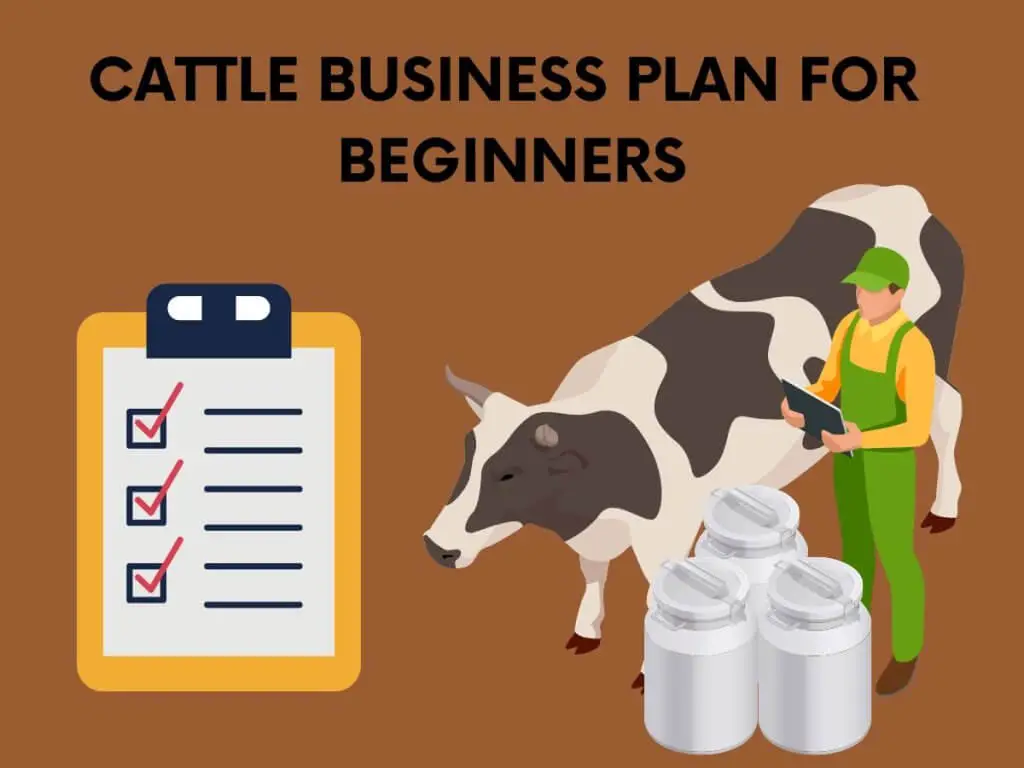
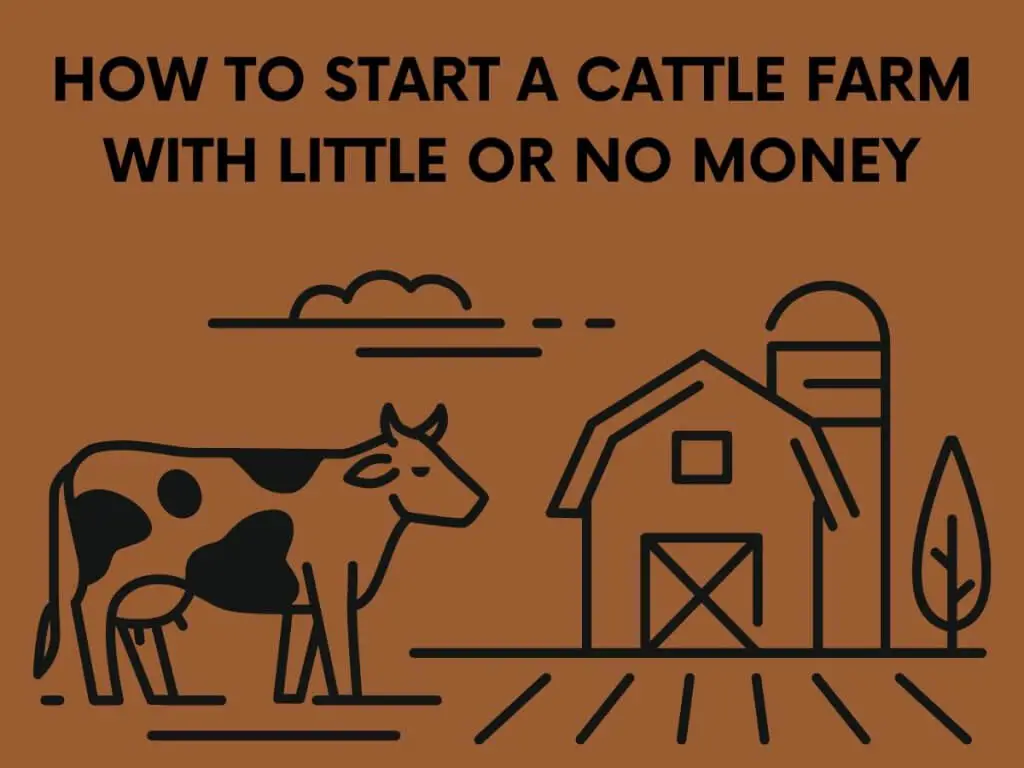
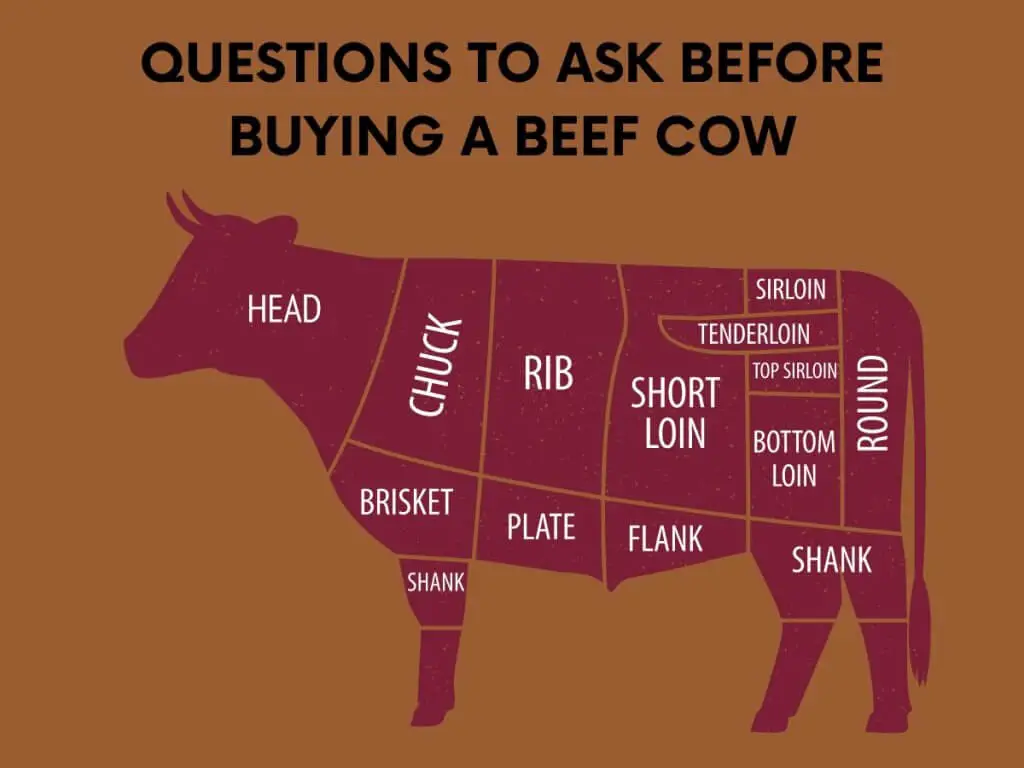
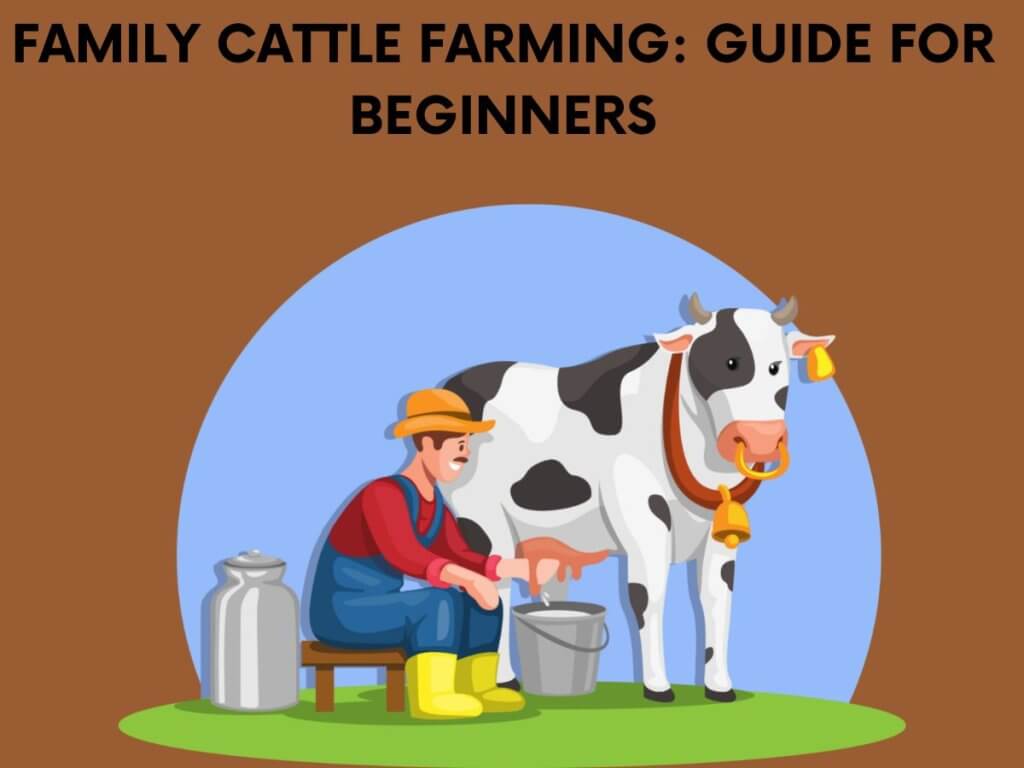
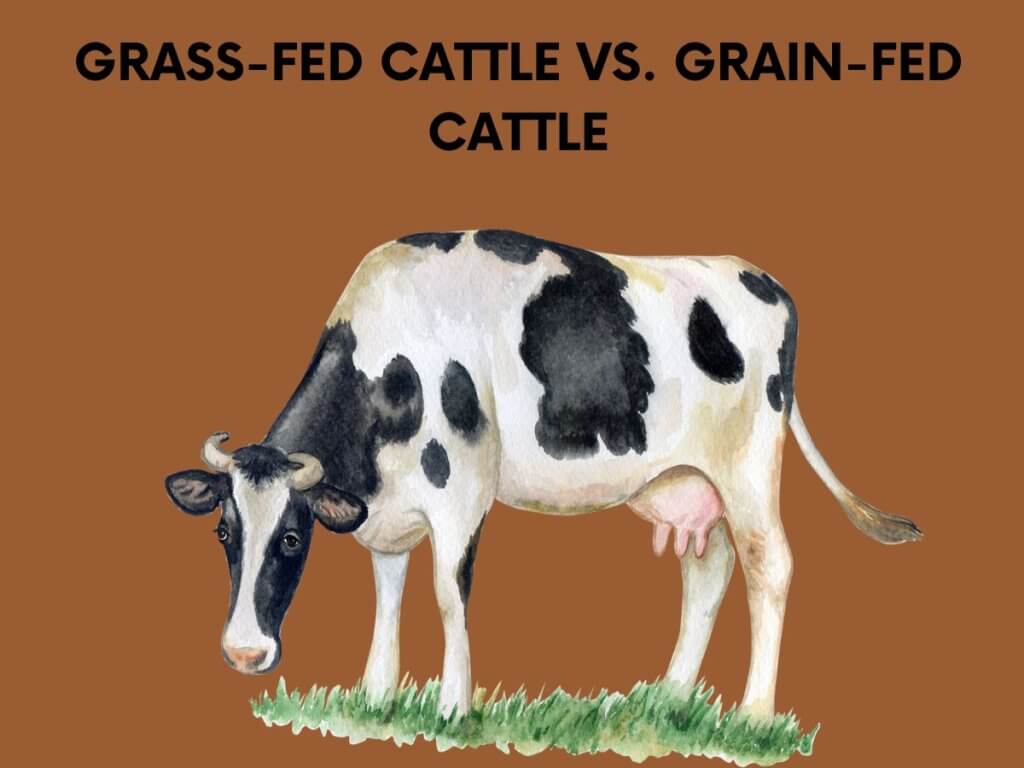
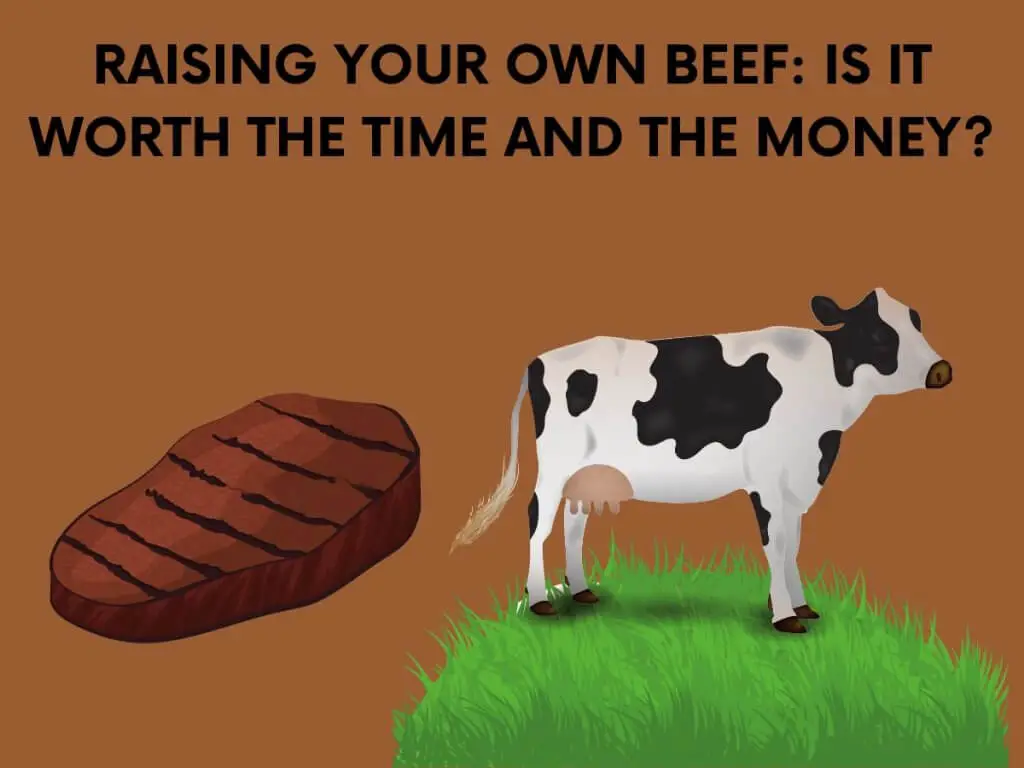
Cow Raising Books To Read
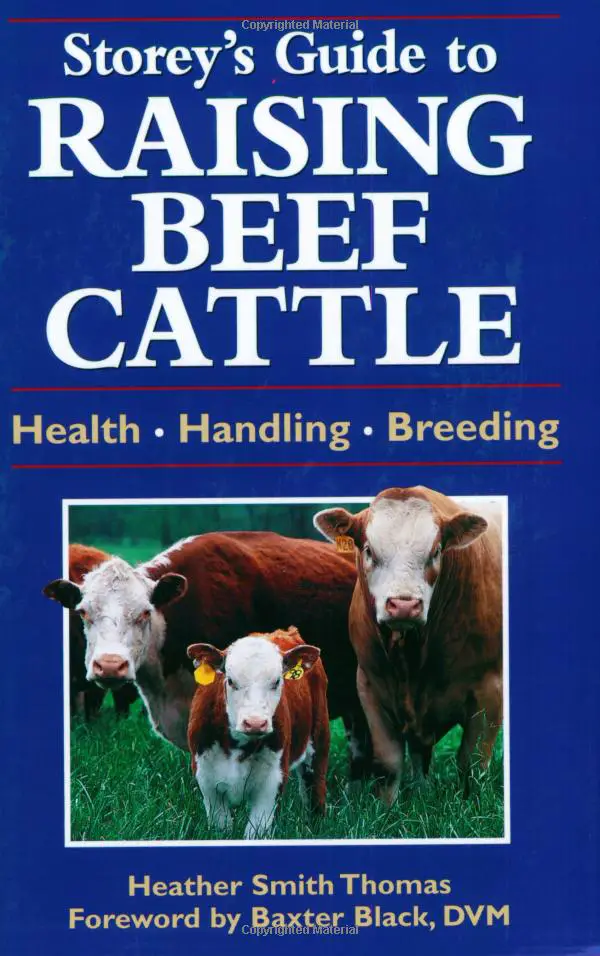
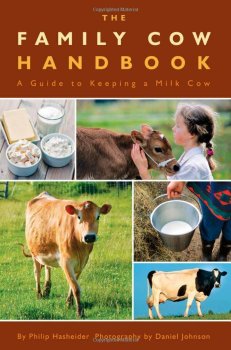
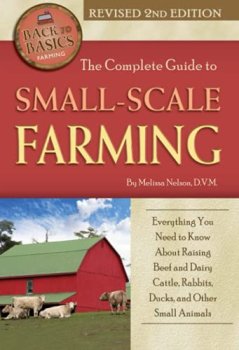
Local/Regional Orgs And Resources
Farm and agriculture associations
Numerous farm and agriculture associations in the United States provide valuable resources and support for those interested in raising domestic cows. These associations may include state-specific groups and national organizations like the American Farm Bureau Federation and the National Farmers Union.
These organizations offer various services, including educational resources, networking opportunities, and advocacy efforts for farmers.
Livestock breeders and dealers
Livestock breeders and dealers provide a valuable source of high-quality breeding stock for those interested in raising domestic cows.
Numerous organizations and associations represent livestock breeders and dealers, including the American Angus Association, the American Hereford Association, and the American Simmental Association.
These groups maintain breed registries, provide breed-specific educational resources, and promote the interests of their members.
Choosing reputable livestock breeders and dealers ensures new farmers start their operations with healthy and genetically sound animals.
Veterinarians and animal health services
For those interested in raising domestic cows, veterinarians and animal health services are critical resources for maintaining the health and welfare of their animals.
In the United States, numerous veterinary practices and animal health services specialize in large animal care, including those that focus specifically on cattle.
These services provide routine care, such as vaccinations, health exams, and emergency and surgical care.
Agricultural extension services
Agricultural extension services provide a wealth of information and resources for farmers, including those interested in raising domestic cows.
These services are typically offered through state and county offices and may include workshops, training sessions, and other educational resources.
Agricultural extension services advise on many topics related to raising cows, including herd health, nutrition, and breeding.
Local/State Laws
Zoning regulations
Zoning regulations in the United States significantly impact raising domestic cows in given areas. These regulations are typically set by local or state governments and limit the number of cows kept on a given property. They also dictate requirements for fencing, manure management, and other issues.
Before beginning a cow-raising operation, it’s important to research and understand the zoning regulations in the area and to obtain any necessary permits or approvals.
Violating zoning regulations result in fines or other penalties, so ensuring compliance from the outset is important.
Animal welfare and protection laws
Numerous animal welfare and protection laws regulate the treatment of domestic cows and other livestock. These laws are enforced at the federal, state, and local levels and may dictate requirements related to animal housing, feeding, transportation, and other issues.
Farmers raising domestic cows must comply with these laws to ensure the health and welfare of their animals, as well as to avoid legal consequences. A veterinarian and other animal health professionals help farmers ensure they are meeting these requirements.
Licensing and permit requirements
Licensing and permit requirements for raising domestic cows depend on the location and scale of the operation. Some states and localities may require licenses for keeping livestock and may have specific regulations related to manure management, water use, and building codes.
Farmers may also need permits to sell milk or meat products depending on the state and the intended market. It’s advisable to research and understand the licensing requirements in the area before starting a cow-raising operation.
Environmental regulations
American environmental regulations have significant implications for those raising domestic cows. These regulations are typically set at the federal, state, and local levels and may dictate water quality, air quality, and waste management requirements.
Farmers may need to obtain permits or take specific measures to comply with these regulations, including installing waste management systems, implementing erosion control measures, and monitoring water and soil quality.
You must research and understand your local environmental regulations and take steps to ensure compliance.
Choose the Right Habitat
Assessing the land for suitability
When assessing land for raising domestic cows, you should consider several factors. These include the size and topography of the land, the availability of water, and the quality of the soil. The land should be suitable for grazing, with adequate access to shade and shelter.
The availability of veterinary care and other support services in the area are other factors to consider.
Building and maintaining fences
Building and maintaining fences is an important aspect of running a cattle farm. The fence should be strong and secure enough to contain the cows and protect them from predators. You should choose fencing materials that are durable and resistant to the elements.
Regular fence maintenance, including checking for damage and repairing any issues, ensures the safety and security of the cows.
Providing shelter and water
Providing adequate shelter and water is essential for raising domestic cows. The shelter should protect from the elements and be large enough to accommodate the cows comfortably.
The water source should be clean and easily accessible for the cows, with enough capacity to meet their needs.
Regular maintenance of the shelter and water source helps ensure the health and well-being of the cows.
Developing a grazing plan
Developing a grazing plan is important for ensuring cattle health and land sustainability. The program should consider the land size and topography, as well as the cows’ nutritional needs.
Rotate grazing areas to allow the land to rest and recover, and regularly monitor the grazing areas so you know the cows are getting the nutrients they need, and the ground is properly managed.
Choosing The Right Breed
When starting a small-scale cattle operation, consider the type of beef cattle breed best suited to your land and climate, as well as your goals for raising beef cattle.
You will also need to think about pasture management, feed, and the health of your animals.
Determining your production goals
Choosing the right cattle breed is essential for achieving your production goals when raising domestic cows.
Considerations such as milk or meat production, temperament, and climate adaptability should be considered when selecting a breed.
Researching different breeds and speaking with experienced breeders helps make an informed decision. Choosing the right breed ensures the success and profitability of your operation.
Evaluating breed characteristics
Evaluating breed characteristics is important for selecting the right variety when raising domestic cows.
Considerations such as milk or meat production, temperament, size, and color should be considered when evaluating breed characteristics.
Assessing breed availability and cost
Assessing breed availability and cost is an important factor to consider when selecting a breed for raising domestic cows.
Some species may be more readily available and affordable than others, depending on your location and the demand for certain breeds in your area.
Researching local breeders and comparing prices helps in making an informed decision.
Selecting reputable breeders
Selecting reputable breeders is crucial to acquiring healthy and genetically sound cows. A reputable breeder should have a history of producing high-quality cattle and providing excellent customer service.
Researching breeders online, visiting their farms in person, and seeking recommendations from other livestock owners identifies reputable breeders.
You must also ask questions about the breeder’s breeding program, animal health practices, and genetic testing to ensure you acquire healthy and productive cows.
Grass-Fed Beef Cattle?
Grass-fed beef cattle are typically considered healthier for human consumption than feedlot-raised beef. Grass-fed beef is leaner and contains more beneficial nutrients, such as omega-3 fatty acids.
To ensure their grass-fed beef cattle remain healthy, ranchers must pay close attention to pasture management and ensure their animals receive proper nutrition and deworming.
Additionally, ranchers should consider crossbreeding their cattle to achieve desirable traits, such as resistance to certain diseases or increased hardiness.
Sourcing And Buying
Identifying reputable suppliers
When considering raising a domestic cow, it is important to identify reputable suppliers for all necessary supplies, including feed, bedding, and medical supplies. One option is to check with local agricultural stores or co-ops.
Another option is to research online suppliers, but it is important to ensure that they are reputable and have positive reviews from other customers.
It may also be helpful to reach out to other local farmers or livestock owners for supplier recommendations.
Evaluating animal health and history
Before purchasing a cow, it is important to evaluate its health and history to avoid buying a sick animal or one with a contagious disease that could infect other livestock.
Look for signs of illness such as lethargy, coughing, or runny nose, and ask the seller for a record of the cow’s vaccinations, medical treatments, and any previous health issues.
A veterinarian also performs a health check and recommends any necessary treatment before introducing the cow to your farm.
Negotiating prices and terms
When negotiating prices and terms for purchasing a domestic cow, it’s important to research and have a clear idea of what you’re looking for. Make sure to ask questions and understand the seller’s perspective.
Consider age, breed, health, and any additional services or products. Be prepared to negotiate and come to a fair agreement for both parties.
Transporting and introducing new animals
When transporting and introducing new animals to a domestic cow herd, it’s important to follow proper biosecurity measures to prevent the spread of diseases. This includes isolating new animals for a while and monitoring them for any signs of illness.
Transporting animals is stressful, so taking precautions to minimize stress and ensure their comfort during transport is important.
Introducing new animals slowly and in small groups reduces any territorial or social conflicts that may arise.
Basic List Of Equipment
Fencing and gates
Fencing and gates are essential infrastructures for raising domestic cows. Fences keep cows within designated areas while protecting them from predators and preventing them from damaging surrounding properties.
Gates provide access points for moving cows between areas or bringing supplies and equipment. Many fencing and gate options are available, including traditional barbed wire, electric, and pipe fencing. The choice will depend on budget, terrain, and personal preferences.
Please ensure that fencing and gates are properly installed, regularly maintained, and free of hazards that could injure cows or compromise their safety.
Water troughs and piping
When considering water systems for your cows, it is important always to provide access to fresh, clean water. This can be accomplished through water troughs or a piped water system.
The water trough should be large enough to accommodate the herd size and cleaned regularly to prevent the growth of algae and bacteria.
A piped water system may be more efficient and convenient but requires careful planning and installation to ensure proper water pressure and delivery.
Feeding and milking equipment
Feeding and milking equipment are essential for raising a domestic cow. Cows require high-quality forage, such as hay or grass, as well as supplements like grain, minerals, and vitamins.
Feeding equipment such as feeders, troughs, and hay racks are necessary to provide the right nutrition in the right quantities. Milking machines, milk tanks, and storage containers are required for harvesting and storing milk.
Choose high-quality equipment, maintain it regularly, and follow recommended safety guidelines.
Handling and transportation equipment
Handling and transportation equipment are essential for safely moving cows around the farm or elsewhere. This equipment may include halters, lead ropes, headlocks, chutes, loading ramps, and trailers.
These items must be sturdy, well-maintained, and appropriate for the size and weight of the cows. It’s important to ensure that cows are calm and comfortable during transportation, as stress negatively affects their health and well-being.
Proper equipment and techniques make handling and working with cows significantly easier and safer.
Feeding
Understanding cow nutrition
Understanding cow nutrition is crucial for successful and sustainable cow farming. A balanced diet for cows should consist of good quality hay or grass and a mineral supplement.
Cows also need access to fresh water at all times. Consulting with a veterinarian or nutritionist ensures that your cows get the proper sustenance.
Developing a feeding program
Developing a feeding program for your domestic cow should start with understanding its nutritional requirements based on age, weight, and activity level. Hay or grass should be the primary component of the cow’s diet, and it should be supplemented with grains and protein sources if necessary.
Feed rations should be adjusted regularly to maintain a healthy body condition score.
Consulting with a veterinarian or nutritionist can help you develop a personalized feeding program for your cows.
Evaluating feed quality and availability
Evaluating feed quality and availability is crucial for anyone considering raising a domestic cow for the first time. Cows require a balanced diet that includes roughage, such as hay or grass, and concentrates, such as grains.
It’s essential to ensure that the feed is good quality and free of harmful substances. You should also assess the availability of feed sources throughout the year, as cows require a constant food supply.
Monitoring feed intake and weight gain
Monitoring feed intake and weight gain is essential for anyone considering raising a domestic cow for the first time.
Cows should consume 2-3% of their body weight in dry matter daily, and a decrease in feed intake may indicate health problems.
Regularly weighing the cow tracks weight gain and ensures they are growing appropriately. Adjust the feed amount and type based on the cow’s age, health status, and production needs to promote optimal weight gain and overall health.
Cleaning
Maintaining a clean and hygienic environment
Cows are susceptible to various diseases and infections, which can be prevented by keeping their living area clean and dry.
Regular removal of manure, bedding, and any other waste is essential to prevent the buildup of harmful bacteria and pests.
Providing adequate ventilation, lighting, and space for the cows maintains their overall health and well-being.
Managing manure and waste
Managing manure and waste is an important aspect of raising domestic cows. Cow manure is a valuable resource for fertilizing crops, but it must be appropriately managed to prevent environmental and health issues.
Manure should be stored in a designated area away from water sources, removed regularly, and spread on fields as fertilizer.
Additionally, proper disposal of other waste products, such as bedding and feed, is necessary to maintain a clean and healthy environment for the cows.
Implementing biosecurity measures
Implementing biosecurity measures is essential for raising healthy domestic cows. Biosecurity measures aim to prevent and control the spread of infectious diseases affecting animals and humans.
Some basic measures include limiting access to the farm, regular cleaning and disinfection of facilities and equipment, proper disposal of animal waste, and monitoring and isolating sick animals.
A veterinarian can help you to establish a herd health management plan and follow local regulations related to animal health.
Preventing disease and infection
Some key strategies for preventing illness include proper nutrition, vaccination, parasite control, regular monitoring for signs of malaise, and good hygiene practices.
Working with a veterinarian will help you develop a plan that includes a vaccination schedule, a parasite control plan, and regular health checkups.
A clean and comfortable environment for the cows reduces their stress levels and improves their overall health.
Healthcare
Developing a herd health plan
A herd health plan involves identifying potential health risks and developing strategies for preventing and treating diseases.
Working with a veterinarian is essential in developing a herd health plan, including a vaccination schedule, a parasite control program, monitoring and management of herd nutrition, and biosecurity measures.
Regular health checkups and record-keeping are also important components of a comprehensive herd health plan.
Preventing and treating common diseases
Preventing and treating common diseases is critical to maintaining the health of domestic cows. Some common conditions include mastitis, respiratory diseases, and reproductive disorders.
Strategies for prevention and treatment may consist of vaccination, good hygiene practices, proper nutrition, parasite control, and regular monitoring for signs of illness.
Maintaining proper vaccination schedules
Maintaining proper vaccination schedules is important for preventing and controlling the spread of infectious diseases in domestic cows. Vaccination schedules may vary depending on the location and specific disease risks.
Working with a veterinarian is essential in developing a vaccination schedule that meets the herd’s needs.
Record-keeping is also important to ensure that cows receive the appropriate vaccines at the correct times.
Working with a veterinarian
Working with a veterinarian is essential if you want healthy animals. Veterinarians provide guidance on proper nutrition, vaccination schedules, parasite control, biosecurity measures, and herd health management.
They also diagnose and treat illnesses and injuries, perform routine checkups, and advise on the best practices for raising healthy cows.
Regular communication and collaboration with a veterinarian prevent and control the spread of disease and improves the herd’s overall health.








